An angel who brings peace and companionship
【Medical Care】Zhao Keshi embraces death
Interview/Yang Hanjiahua
Interview/Zhao Keshi
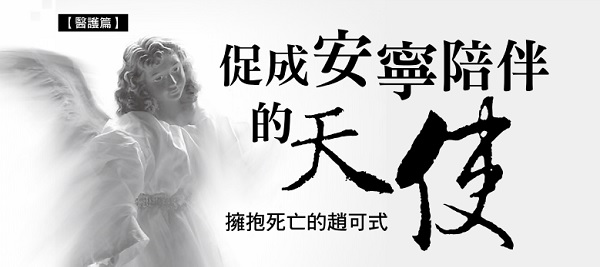
"Keshi, what's wrong with you?"
I still remember that year, Zhao Keshi, an elementary school girl who studied in the Department of Nursing at National Taiwan University with the reporter, rushed back to the nursing student dormitory from the National Taiwan University Hospital with a livid face. She rushed like a whirlwind and couldn't wait to close the door and burst into tears.
Her patient felt the tumor in her abdomen before and after the operation and knew that she had cancer and that the tumor could not be removed. The doctor told the patient that the tumor had been removed and there was no problem. The patient came to ask Zhao Keshi where the young nursing student dared to tell the truth. That day, Zhao Keshi went to the patient's attending physician and first asked him to be honest with the patient, but he insisted on continuing to lie, saying, "If you lie to him a hundred times, he will believe it!" The two had different positions, which turned into a heated argument.
In the 1960s and 1970s, the medical profession's culture in dealing with terminal cancer was to "conceal the truth." The patient's true condition was strictly sealed, and only family members were asked to prepare for funeral arrangements. In hospitals, it is common for patients who realize something secret to hide in the toilet and cry, while their wives stand in the corridor and cry. When two people with sad souls meet, they pretend as if nothing has happened and stage a life drama that is shallow and insincere.
Professor Zhao Keshi confided in her best-selling book "Traveling with Peace": "When working in a hospital, faced with these suffocating miserable lives, some people become insensitive, do some mechanical routines, and are busy. Spending every day in a hurry; some people leave the hospital and this job, out of sight and out of mind." However, Zhao Keshi made another choice and embarked on a road of no return to find a way to care for these suffering patients and their families. She immersed herself in the hospital library to search for information, studied in the United States for further studies, and even went to the most advanced hospice hospital in the UK to take courses and practice.
Over the past thirty-five years, Zhao Keshi has been seen everywhere in Taiwan with a sense of mission. She has moved forward in four directions, starting from self-service, education, system and policy, and localized research, to promote terminal care and set off a strong and far-reaching wave. Social movement wave.
In 2000, Zhao Keshi teamed up with a group of palliative care colleagues to work together to push the Taiwan Legislative Yuan to pass the "Hospice and Palliative Care Ordinance", setting a precedent for terminally ill patients to have medical autonomy. Since then, the patient's wishes have been respected. After signing a letter of wishes, he can legally "do not perform cardiopulmonary resuscitation"; at the same time, he can "appoint a medical agent in advance". When the patient becomes incapacitated, there is a pre-authorized agent. Act on behalf of wishes or make medical decisions.
The reporter was honored to have a telephone interview with Zhao, the "Mother of Taiwan's Hospice Care" who responded to Heavenly Father's call and put her life on the altar to serve the "least brother" (refer to Matthew 25:31-40). Can be taught.
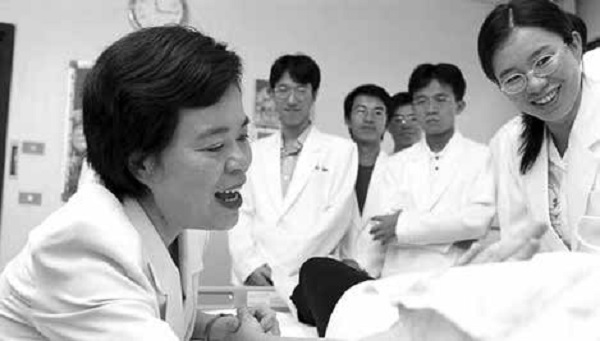
▲Professor Zhao Keshi advances in four directions, starting from services, education, systems and policies, and localized research, to promote terminal care.
(Taken from http://news.secr.ncku.edu.tw/ezfiles/54/1054/pictures/803/part_137042_750731_99166.jpghttp:/
//cw1.twCH/images//channel_master//4e3ca047-638c-4c8a-ac9b-)d356156c5bb6.jpg)
KRC: When I was studying at National Taiwan University, we were all just a bunch of insignificant nursing rookies, but you dared to be an advocate for patients’ rights and took on the responsibility of asking for help. What kind of experience gave you such courage?
Zhao:When I was fifteen years old, I suffered from a brain tumor. Before the operation, the doctor told my father and sister that the mortality rate of this operation was 50%, and even if I survived, I would most likely become a vegetative state. In other words, the chances of me getting sober were slim to none. Even though I didn't know what the doctor said, I saw that my family was suddenly very kind to me. In that era when supplies were not abundant, my sister actually bought me a box of chocolates and a box of apples. I thought, "I must be dying!" I secretly wrote a suicide note and hid it in a pillowcase, and told my sister that if anything changes in me, I must "shake the pillowcase!" Of course, I'm not dead. I'll hurry up after the operation. Take out the suicide note and tear it up.
When I was only fifteen years old, I knew very well that I stood at the critical point of life and death. How could those adult patients not know this? The patient is not stupid and ignorant! The disease is in his own body, with a hard lump that can be touched, and his physical condition is deteriorating... It is impossible not to know clearly, how can he be fooled?
If the medical staff are unwilling to devote time and energy to discussing the problem, and simply deal with it, without allowing the patients to push aside their worries and pour their hearts out, how can they help them get rid of negative emotions such as fear, doubt, and anxiety?
A doctor is a doctor who treats "people", not a craftsman who repairs "machines". If doctors just fix this and that, they neither care about the patient's psychology nor ignore the patient's spirituality. As nurses who take care of sick "people", we cannot follow this path. Unfortunately, I was too young at that time, and the medical school did not offer a course on how to work with doctors. I would only be anxious and cry.
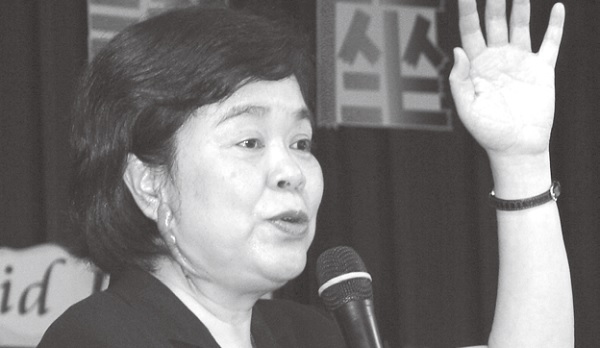
▲Dr. Zhao Keshi was invited to give lectures everywhere and spared no effort to promote hospice care.
(Taken from http://www.tkgsh.tn.edu.tw/counsell/Colored Life Lecture 3.JPG)
KRC: At that time, there were no death-related courses in medical schools. Doctors themselves felt helpless and helpless about life and did not know how to talk about "death". It was even more difficult for ordinary people.
Zhao:There is a widespread myth in the medical community: You cannot tell a patient that he has a terminal illness or is close to death, because he will commit suicide. A family member once came and begged: "Don't talk about it, my mother will commit suicide!" Is this really possible?
It really does! A doctor told the patient: "You have terminal lung cancer. There is nothing we can do. You can eat whatever you want and play wherever you want!" The next day she asked her son at work in front of the window sill. After the wife waved her hand, she hanged herself!
However, the problem is not that the truth is told, but that the words are abrupt and reckless, without a proper process of careful and step-by-step communication, and touch on the topic of death. It is so rough and superficial, which makes the patient despair, and thus leads to tragedy.
A good example may only reach ten people, but a bad example may spread to a thousand people and become a rumor, scaring people to shut up and dare not talk about "death".
KRC: Now that we are in the e-generation, why do Chinese people still avoid talking about "death"?
Zhao:Talking about "death" is an art, and it is by no means impossible to talk about. There is no one who cannot talk about it, but how to talk about it?
A close friend of mine left in the middle of the night, and I stayed with her from five to nine o'clock in the afternoon. Her husband and three children were also with her. They knew it was almost time and wanted to have an in-depth conversation with her.
That day she was conscious and in good spirits. I asked her, "Ah Shu, are you afraid?"
What I'm asking is, are you afraid of "death"? Ah Shu understood what I meant and answered without hesitation: "I'm not afraid!"
"You have experienced ups and downs in your life, with a lot of adversity, good times, joy and sorrow. What feelings appear in your heart now, can you think of, and can you recall? What emotions? What events?"
Death has already driven its carriage on the road. I use the method of "life review" to gently guide Ah Shu to prepare for the coming moment, so that she can express love, apologize, and express love to the most meaningful people in her life in a timely manner. Say thanks and say goodbye.
Ah Shu knew very well that I wanted her to explain to her husband and children, so she said without hesitation: "I don't remember all those negative things. I only remember the joy, peace, and happiness..." The whole family cried. Became a ball.
Think about it, for more than four hours, we talked about "death" throughout the whole process, but we didn't say a single word "death". Later, I was very tired and told Ah Shu, "I'm going to take a rest and come back to stay with you in the evening." Ah Shu said, "Goodbye then!" I also understood what she meant by saying goodbye. Ah Shu rested in peace two or three hours later.
"Death" must be discussed at the right time, in the right way, and by the right people. If both parties do not have a foundation of trust and a cordial relationship, they cannot talk hastily, otherwise it will be superficial and lack depth. Even more so, harm is caused by not understanding the person.
Talking about "death" requires preparation, training, or education. Learn the six Ws: Why, why talk about death; Who, who will talk; When, when to talk; What, what to talk about; How, how to talk, and Where, where to talk. If you can master these six W's, "death", a topic that people avoid like the plague, will not be so hateful.
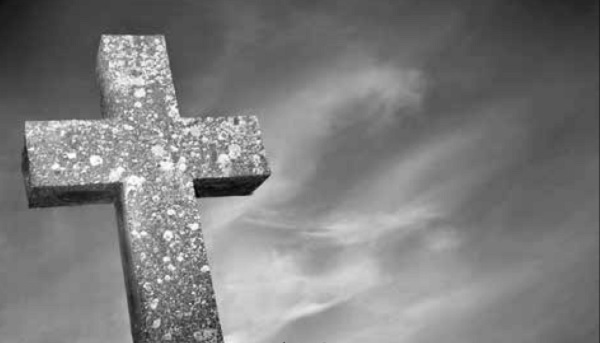
▲(Taken from http://sky-heartchen826.blogspot.tw/2015/03/2.html)
KRC: Tell the patient the truth?
Zhao:In informing seriously ill patients about their condition, the pros and cons must be weighed. For example, if this person has a nervous personality, suffers from depression, or is timid and fearful, he will collapse as soon as he is told about his condition. This is doing more harm than good.
If the patient really wants to know and has already guessed that the patient is inseparable, and the person next to him still lies to him, it will only cause him to panic even more, destroy his trust in others, and hurt the relationship between them. Notifying patients of illness requires skill and is an art. It must be tailor-made and there is no rigid model to follow.
KRC: Do you have any tips for talking about death with your loved ones?
Zhao:Let him talk without interrupting. The mother said to her daughter: "I'm sick and can't go to the post office. You can take my ID card and withdraw all the money and put it in your name." The mother was explaining the funeral arrangements implicitly, but unfortunately her daughter didn't understand and got angry. , interrupted my mother and said, "What are you talking about? I won't do this kind of thing!" Not letting her talk was the saddest thing for her, because she then had something deeper to say.
In fact, the mother was just testing her daughter to see if she could talk openly and heart-to-heart. When she saw that she couldn't, she closed the bridge of communication.
I often tell family members that there is only one trick: "When the patient talks, 'pull his tongue'! Encourage him to talk more, and talk more!"
When a mother was explaining her funeral, her son, who was in his thirties or forties, was hugging her, and his wife and daughter were surrounding him. Even if the mother is out of breath, the people next to her do not stop her from speaking. When the mother cries, the children also cry quietly and say, "Mom, take a break and talk more!"
The children set up a video recorder and recorded their mother's video throughout the whole process, allowing her mother to feel how serious they were. This audio-visual record is the greatest comfort to patients and family members, and will become a precious treasure in the family museum. Children and future generations can see his face and hear his voice again. She never forgot what she said.
KRC: There is also a myth among the people - informing about the condition will weaken the patient's will to live. can you?
Zhao:The factors that affect a patient's will to survive are complex and not simply a matter of knowing the condition. In my column in "United Daily News" I pointed out that the common possible reasons are:
1. Quality of life. Pain, weakness, physical disorders, side effects of chemotherapy, etc., lead to poor quality of life and severe suffering, which are often the main reasons for severely damaging the patient's will to survive. The most important concept of palliative care is to improve the patient's quality of life.
2. The quality of family care and support. If a family member shows the slightest hint of impatience, the patient will feel the fear, self-blame and guilt that drags down his family.
3. Economic factors. Patients often say: "I have no conditions to live anymore!" or "I can't spend all the money and make life difficult for my family in the future!" They often sacrifice themselves in order to leave more money for their families, which is heartbreaking. Love!
4. Outlook on life, meaning and religious beliefs. If the patient believes that the remaining life can do nothing but delay time in a meaningless manner, or if the patient believes that after death he will enter a new and better life, he may not have a strong will to live.
In clinical practice, I have seen the attitude of some religious masters towards life and death: do not seek death, do not wait for death, and are not afraid of death! This is not negative and pessimistic, but positive and open-minded. They don't want to linger, but they want to live meaningfully until the last moment.
KRC: You have cared for thousands of terminally ill patients. From your experience, are Chinese Christians and their families more likely to face death?
Zhao:In 1987, I excitedly set foot in the UK and came to St. Christopher's Hospice Hospital to take Dr. Sanders's class. After class on the first day, I excitedly walked up to her and asked her: "When people face death, Does having a religious belief make a difference?" The answer I expected was: "Yes!" But she replied without hesitation: "No!" It was surprising! Really? So where is the power of religious belief?
The United Kingdom has diverse religions. Dr. Sanders has been on the front line and has taken care of patients of various religious beliefs - Hinduism, Christianity, Islam, Judaism, Buddhism, Catholicism, etc. In the next sentence, she added: "When facing death, There is no difference with religious denomination. To put it more clearly, it does not matter about religion, but faith; it depends on whether a person's faith has penetrated into his/her bones and blood. If a Christian's faith has been deeply rooted in his/her bones. With blood, he will definitely be different when facing the most important "death" in life. If not, he is no different from a person without faith."
I was dubious at the time. In 1993, I returned to Taiwan and worked on the front line to take care of terminally ill patients. It was more than 20 years later that I discovered that Sanders was really a wise person.
I have seen some Catholic and Christian believers who kept praying for miracles of healing. When God did not answer, they complained, became angry with God, and even "apostasy" to worship idols. But there are also some Christians who are willing to submit to the sovereignty of their Heavenly Father and live out the connotation and depth of their faith when they are sick. Just as Jesus said: "My food is to do the will of the One who sent me and to finish His work." ” (John 4:34)
KRC: Many overseas travelers have elderly parents. How can they prepare for the day when their parents will become seriously ill?
Zhao:Advance Care Planning (ACP) has become popular in the United Kingdom and the United States in recent years. For example, the American-Chinese Compassionate Care Alliance in California is vigorously promoting it, and Taiwan is doing the same thing.
For example, a close relative of mine is eighty-four years old. She is illiterate and has diabetes and high blood pressure. When I was having dinner and chatting with her, I said: "Hey! You know! President Chiang Ching-kuo died of diabetes! Diabetes is not a trivial matter! You see, Chiang Ching-kuo ended up with diffuse intravascular bleeding. He needed intubation and emergency treatment. Ah, send it to the intensive care unit..." Before I could finish, she said, "You must not do this to me! No! I don't want it! I am over eighty years old and have tubes all over my body. What are you doing? It’s so painful, don’t do it!” I said, “I will dictate and write down your wishes now, and then you can sign them (she can sign her name) and give them to your children to let them know what you want. What, don’t want anything. Okay?” Before finishing the meal, she urged me: “Hurry up and write!”
I asked again: "Hey! If you are lying in bed and can't move, where are you going? A nursing home?" "Oh! That's hell on earth, I won't go there!" I said, " "How about going to a high-quality nursing center?" "Isn't it expensive?" We sketched out ACP in this back-and-forth conversation!
When our parents are old, we must talk, not about death, but about the medical care plan in case of serious illness, what we want, what we don’t want, and how to face the day of serious illness.
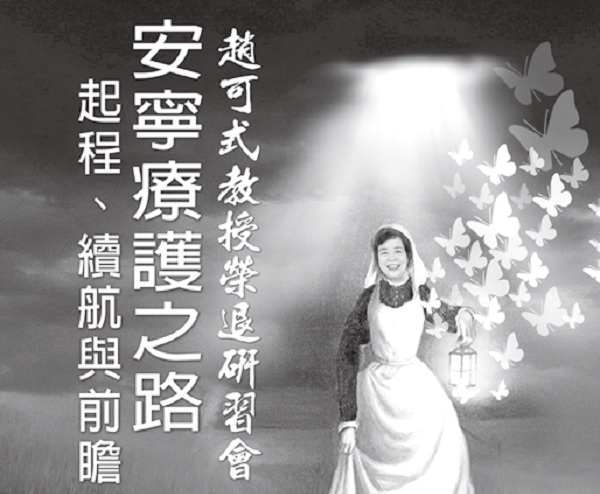
▲Dedicated his life to palliative care, Professor Zhao Keshi retired in August 2015. The Department of Nursing of National Cheng Kung University School of Medicine held a seminar on "The Road to Palliative Care - Beginning, Sustainability and Prospects" to express respect and respect for Zhao Keshi. grateful. (Taken from http://news.secr.ncku.edu.tw/ezfiles/54/1054/pictures/803/part_137042_750731_99166.jpg)
KRC: How to spend the last six months of his life with loved ones from far away or close by?
Zhao:If a family member is nearing their final moments, the most important thing is to help them live comfortably and with dignity. The hospice ward of the National Cheng Kung University School of Medicine Hospital where I serve has 20 beds. The patients were wheezing, in pain, nauseated and vomiting, and had difficulty breathing... However, after coming in, these symptoms were greatly reduced and there was almost no pain. Whether the medical team has learned palliative care to reduce pain and relieve symptoms can have a huge impact on the patient. If you can enter a high-level hospice ward, the patient will always be free from pain, and the pain index will drop from ten or nine points to one point, two points or even zero points, which is painless.
The principles of accompanying and caring for our beloved family members are:
First, determine a good quality of life. If there is no quantity and no quality, then why should we live?
As a person of faith, I am not afraid of death at all. I know for sure that when I close my eyes and open them again, I will see the Lord Jesus whom I have been searching for all my life, resting in the arms of the Heavenly Father who loves me. However, I am afraid of physical pain, worried about falling into the wailing of pain and suffering, and becoming undignified. This is what I fear most, and what many patients fear most.
Second, provide an emotional outlet. A person's electrocardiogram goes up and down, and his emotions also go up and down. Unless he dies, it becomes a straight line. How can people be emotionless? If you have emotions, you must have an outlet. Give family members the opportunity to talk about their emotions, share their happiness and joy, and channel their anger and sadness.
Third, take care of spiritual needs. In a broad sense, spirituality is the relationship with heaven and earth. If there is any broken relationship, we must help him/her repair it.
For example, faith must be rooted in life, and those who do not know God must be helped to accept faith; resolve grievances and grudges with others; enhance self-understanding and ability to reflect; help him/her realize that this life, no matter how long or short, is full of life. Meaningful (this is logotherapy).
We need to be connectors to help our family members connect with heaven, earth, beings and ourselves, so that they will be safe and sound.
Fourth, help him fulfill the "four ways" of life - expressing love, apologizing, thanking and saying goodbye.
KRC: Many patients are afraid to use morphine for pain relief, fearing addiction; and some children struggle mentally when injecting their parents with morphine, fearing that they are "murdering" their parents. What do you think of painkillers?
Zhao:The Chinese have been shrouded in the shadow of the Opium War for nearly two centuries, and it is still difficult to overcome the fear and misunderstanding of morphine.
Morphine is the most important and effective drug for treating severe visceral pain. People worry that after taking morphine, they will be in a happy mood and see the world in colorful colors, just like taking drugs; without morphine, they will feel depressed and see the world in black and white, leading to psychological dependence, which is commonly known as psychological dependence or addiction.
In 1967, Sanders opened St. Christopher's Hospice Hospital. In 1970, she began to study morphine and found that severe pain was the best antidote to addiction. From the 1970s to the 1990s, I found that there was no psychological dependence and addiction did not exist.
Many people love to drink coffee. If they don't drink it for a long time, they will get headaches. This is not an addiction, but a physical dependence. Is it possible to develop physiological dependence after using morphine for a long time? It's possible, but terminally ill patients don't live that long and usually can't achieve the effect of physiological dependence, so there's nothing to worry about.
I have been giving morphine to patients in Taiwan for more than 20 years. The highest dose used was 1,600 milligrams per day. I have never seen a patient become addicted. However, we have seen physical dependence, yawning, runny nose, sweating, etc. when not using morphine. Since we are terminally ill, we are not worried at all.
In Taiwan, palliative care rarely injects morphine. Most patients are given oral medication, while the rest use buccal solvents, skin patches (150 times more effective than oral morphine, and the drug's effect lasts for 72 hours), and Nose sprays, etc., patients will suffer less from injections.
Among all the symptoms of terminally ill patients, "pain" is the easiest to deal with. There are many weapons to deal with it. There are various short-acting, medium-acting to long-acting analgesics that can be used together. If there are still patients suffering from pain, it is very difficult to deal with it. It could be a failure of the medical team. If you think morphine is harmful to terminally ill patients, it's probably out of ignorance. Fortunately, after more than two decades of continuous education and propaganda, Taiwan has made great progress and breakthroughs.
KRC: You are one of the Christian believers that I have met in my life who knows the most about love and can best practice the love of Christ. When you were diagnosed with breast cancer in 2006, many people couldn’t help but ask Heavenly Father like Job: “Why? Why? she?"
Zhao:I have never asked: "Why me?" Instead, I asked: "Why not me?" All living beings are equal, and anyone can get cancer! Does having cancer mean that he/she is not good enough or that he/she has committed a sin?
If I want to investigate the reason, it is probably related to my lifestyle. I work from the beginning of the year to the end of the year, with no holidays throughout the year. If I stop, it is because I am sick. In addition to such pressure, there are also food safety issues. What I eat is gutter oil and sour oil from outside. If I eat like this and don’t get enough sleep, how can I not get cancer? When I was first diagnosed with cancer, I said, "Ahem! I finally waited!"
Bad people get cancer, but so do good people! Everyone can die, but why did Jesus Christ die on the cross? What sin did He commit?
My illness is all part of Heavenly Father’s loving plan.
On the contrary, after I got cancer, my patients trusted me even more. I went to a symposium for cancer friends, and some people's cancer had metastasized and recurred. They loved me so much and said that I really understood them and spoke to their hearts. Heavenly Father must have had His good intention and His blessing in letting me get breast cancer. If I were healthy, I wouldn't know how to empathize with a sick person. I can now empathize instantly without having to use empathy skills.
Being sick has given me a deeper understanding of human nature, allowing me to walk with others through the valley of the shadow of death. I feel so natural when taking care of patients. I use my life to experience the helplessness, incompetence and powerlessness. My weakness and discomfort also bring me closer to my patients.
Healthy people cannot understand the feelings of patients, so I serve as a bridge between family members and patients. Getting cancer is the best arrangement Heavenly Father has given me in this life.
KRC: To those Christians who accompany their parents and loved ones on their final journey of life, what is the most intimate message you would like to say?
Zhao:Faith is more important than life. Many people were martyred for the Lord. When a knife was put to their necks to force them to give up their faith, they flatly refused and would rather die with their heads on the ground. They regard faith as more precious than life.
Faith is not cheap, nor does it take root quickly and penetrate into the bone marrow and blood. The Lord Jesus said: “Not everyone who calls me, ‘Lord, Lord,’ will enter the kingdom of heaven…” (Matthew 7:21, Modern Chinese Translation) Entering the kingdom of heaven does not depend on your words, but with your whole body. The whole person and the whole life of existence to practice faith.
I am only afraid of one thing: I will become estranged from Jesus and God the Father, and then it will be too late. Let us maintain an unbreakable connection with Jesus and God the Father in morning prayers, evening prayers, meditation and Bible reading, making death a trivial matter in comparison.
Life is infinite, faith is priceless, and those who believe in the true God can eventually cross the threshold of death and enter the eternity of Christ.
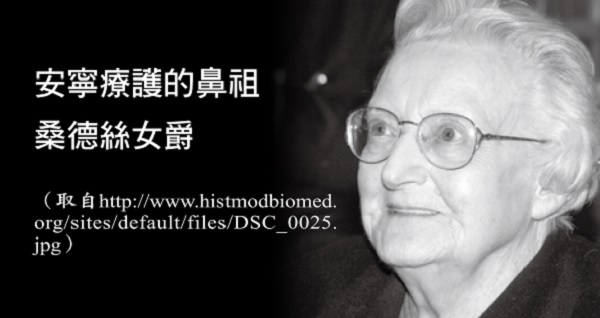
The Originator of Hospice Care baroness saunders
Professor Zhao Keshi studied under Dame Cicely Saunders (1918-2005) of England. Saunders was a nurse and social worker, and had been caring for incurable patients since 1945. Out of sympathy for the physical and mental torture suffered by the patients, especially the devastation caused by pain, she switched to medicine and became a doctor at the age of 39. In 1967, Sanders founded the world's first modern St. Christopher's Hospice in London for terminally ill patients.
This hospital combines teaching theory with clinical research and is a pioneer in researching new ways to relieve pain with morphine and effectively control terminal cancer symptoms. We also serve patients, their relatives and friends with the concept of meeting the physical, mental, spiritual and social needs of the "whole person".
Her famous quote: "You are important because you are you! Even if you live to the last moment, you are still so important! We will make every effort to help you die peacefully; but we will also make every effort to let you live well until "The last moment!" demonstrates the glory of human civilization and the brilliance of humane medical care.
Sanders, this hospice promoter who is respected and admired by the world, is driven by her unwavering Christian faith in her life of love and compassion.
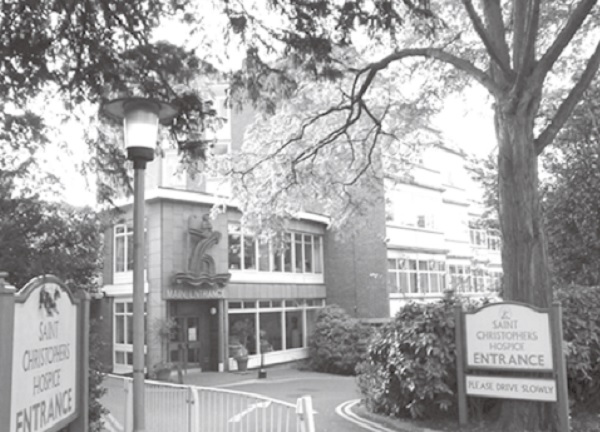
▲St. Christopher Hospice Hospital (retrieved from http://images.slideplayer.com/10/2835089/slides/slide_2.jpg)
 Journalist profile
Journalist profile
Yang Hanjiahua graduated from the Department of Nursing of National Taiwan University and received a master's degree in nursing from New York University. He has taught in several universities in Taiwan and North America. As the corporate editor of this magazine, I once planned to interview my old friend Zhao Keshi, and I finally got my wish after waiting for nearly ten years.
 Interviewee profile
Interviewee profile
Zhao Keshi graduated from the Department of Nursing at National Taiwan University, and received a master's degree from Case Western Reserve University (OH) in the United States, majoring in oncology nursing; and received a doctorate from the same school, majoring in end-of-life care. He was a professor at the Department of Nursing at National Cheng Kung University in Taiwan. He retired in August 2015 and is currently an honorary professor at the School of Medicine at National Cheng Kung University. Winner of the Special Contribution Award of the 14th Medical Dedication Award.
